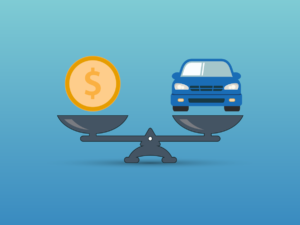Does Refinancing a Car Affect Your Credit?
If you have determined that refinancing your auto loan is the right move at the right time, it is wise to understand the impact an auto loan refinance will have on your credit report. In the short term, the hard credit inquiries registered by new finance sources will lower your score by a few points. In the long term, all that really matters is whether you repay the new loan on time.
Let’s take a closer look at the factors behind your credit score and how it might be affected by an auto loan refinance.
Dawn of a New Deal
Depending on the scoring model, each hard inquiry may reduce your credit score by three to five points. Here are two ways to reduce your search for a new auto loan to a single hard credit inquiry:
- Shop before you buy. Before you submit credit applications to multiple sources, do as much research as possible. If you can determine which finance company, bank or credit union has a competitive offer you qualify for, you might be able to limit yourself to a single application.
- Go on a rate-shopping spree. Determine which finance sources you wish to apply to, then submit all the applications at once. Most scoring models will group hard inquiries for the same type of credit into a single hard inquiry, particularly when they all show up in the same 14- to 45-day period. Applying with a company like IFS, let’s you take advantage of this option without the work. At IFS submit your full loan application, which we will in turn only be sent to those lenders that are match for you.
Hard inquiries typically remain on your credit report for two years. Their impact on your score will lessen after two or three months. Most models stop counting hard inquiries against your score after a year, even if they still appear on your report.
Once you have been approved, your new finance partner will buy out your old loan and report the new one. This could cause the average age of your accounts to decrease. That will have a negative effect on your score, particularly among models that don’t include closed accounts in their payment history calculations. To minimize the impact, consider keeping those old, unused credit card and store card accounts open a bit longer.
The Months and Years Ahead
No matter the model, your payment history counts for at least one-third of your credit score. Missing a single payment can cause a major dent.
If your new creditor tells you the new loan will cover the current month’s payment on the old loan, take heed: If there is a delay in funding, that payment could be missed, and you may not be aware of it until it is already past due. Confirm the new loan will pay off the old loan in time or make the payment and expect a refund.
Go into the new loan with a budget that will allow you to make every single payment on time. If, for any reason, you can’t make a payment one month, call your creditor and ask for an extension. By avoiding late or missed payments, you will quickly undo whatever short-term damage your credit score suffered in the course of the refinancing process.







